-

Hotspot Watch 24 March 2022
Hotspot24 March 2022A weekly update describing soil moisture patterns across the country to show where dry to extremely dry conditions are occurring or imminent. Regions experiencing significant soil moisture deficits are deemed “hotspots”. Persistent hotspot regions have the potential to develop into drought. -
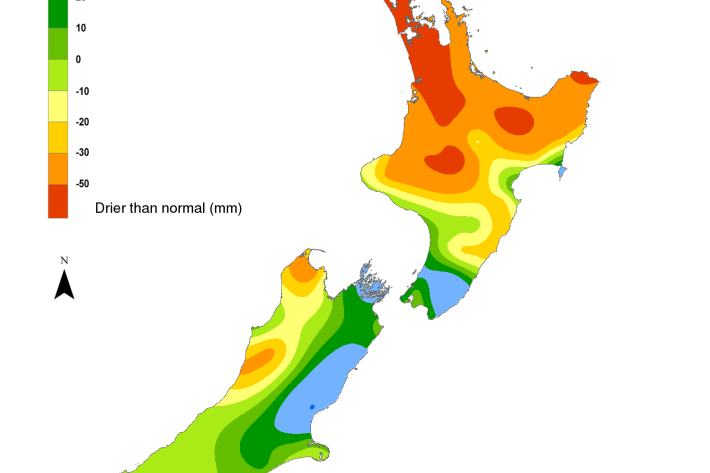
Hotspot Watch 18 March 2022
Hotspot18 March 2022A weekly update describing soil moisture patterns across the country to show where dry to extremely dry conditions are occurring or imminent. Regions experiencing significant soil moisture deficits are deemed “hotspots”. Persistent hotspot regions have the potential to develop into drought. -
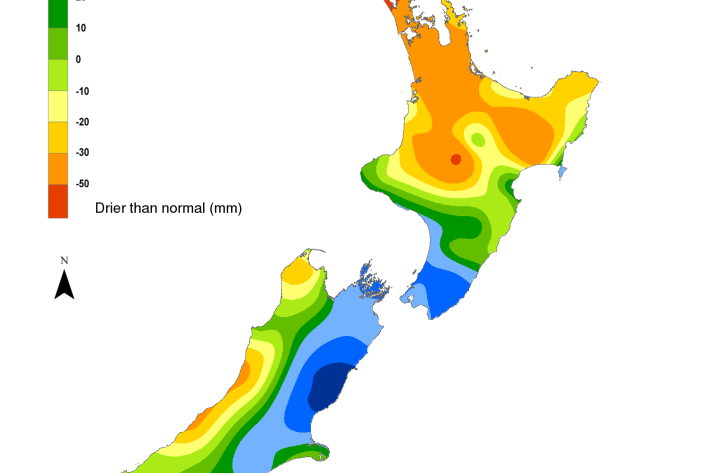
Hotspot Watch 11 March 2022
Hotspot11 March 2022A weekly update describing soil moisture patterns across the country to show where dry to extremely dry conditions are occurring or imminent. Regions experiencing significant soil moisture deficits are deemed “hotspots”. Persistent hotspot regions have the potential to develop into drought. -
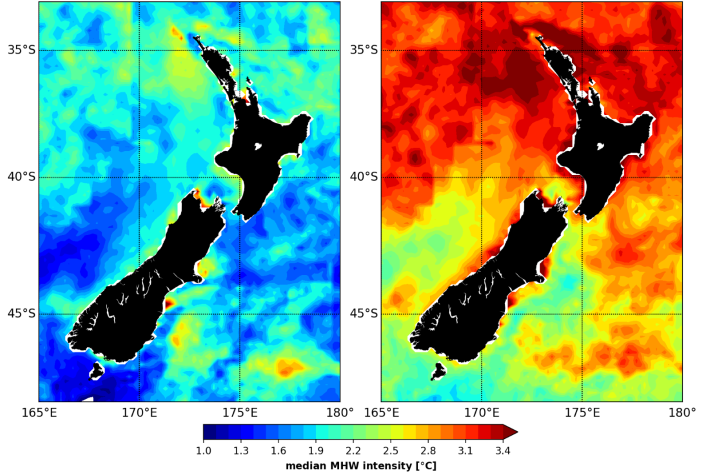
Mean heat: Marine heatwaves to get longer and hotter by 2100
Media release07 March 2022New research from the Deep South Challenge: Changing with our Climate and NIWA shows that New Zealand could experience very long and “very severe” marine heatwaves by the end of the century. -
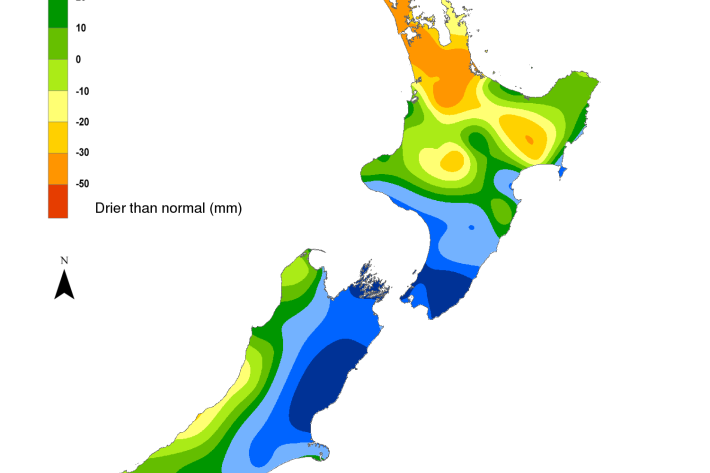
Hotspot Watch 4 March 2022
Hotspot04 March 2022A weekly update describing soil moisture patterns across the country to show where dry to extremely dry conditions are occurring or imminent. -
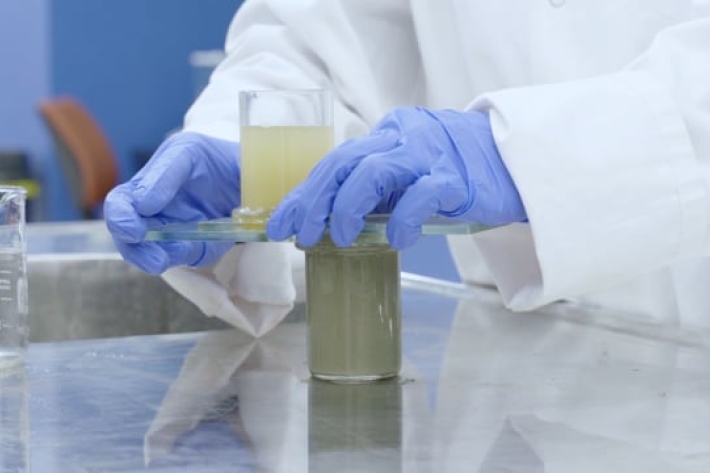
Microplastics: a deeper problem than we thought?
There is increasing global concern about the presence of plastic pollution in our oceans. -
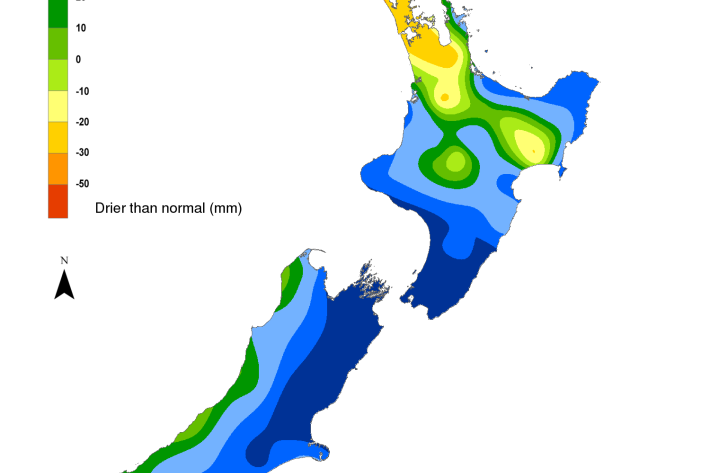
Hotspot Watch 25 February 2022
Hotspot25 February 2022A weekly update describing soil moisture patterns across the country to show where dry to extremely dry conditions are occurring or imminent. Regions experiencing significant soil moisture deficits are deemed “hotspots”. Persistent hotspot regions have the potential to develop into drought. -
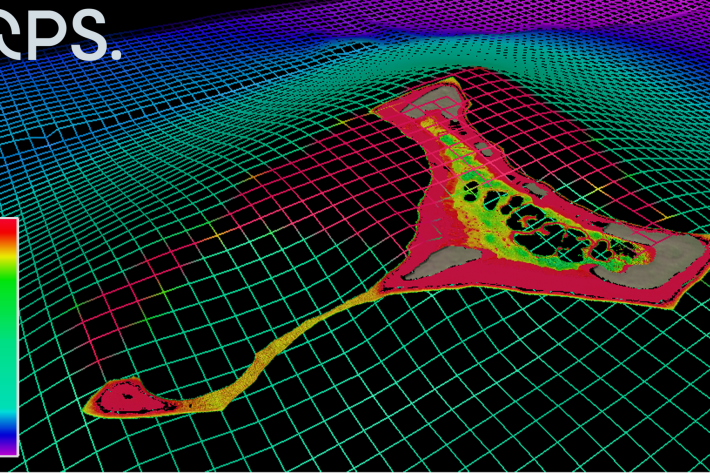
Tropical seafloor secrets revealed
Media release25 February 2022NIWA scientists and Toitū Te Whenua Land Information New Zealand (LINZ) have used satellite technology to chart the Cook Islands’ seafloor in never-before-seen detail. The work was done as part of Seabed 2030 - a collaborative project to produce a definitive map of the world ocean floor by 2030. -

Pacific Risk Tool for Resilience, Phase 2 (PARTneR-2)
Research ProjectThe three-year PARTneR–2 project aims to help countries in the Pacific become more resilient to the impacts of climate-related hazards. -
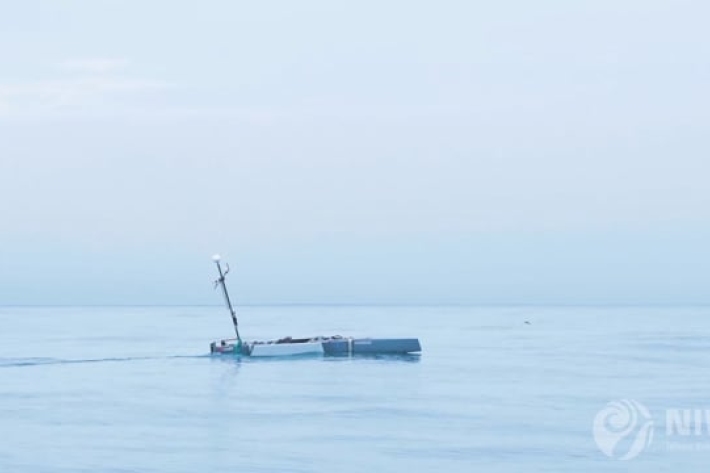
A robot sea craft helps count fish
A six-metre-long autonomous vessel is equipped with artificial intelligence and a range of data gathering equipment, including a battery powered echosounder that can estimate the size of fish populations. -

Cutting-edge AI sea craft helping scientists count fish
Media release21 February 2022A robot sea craft is the latest tool NIWA scientists are using to help them count fish. -
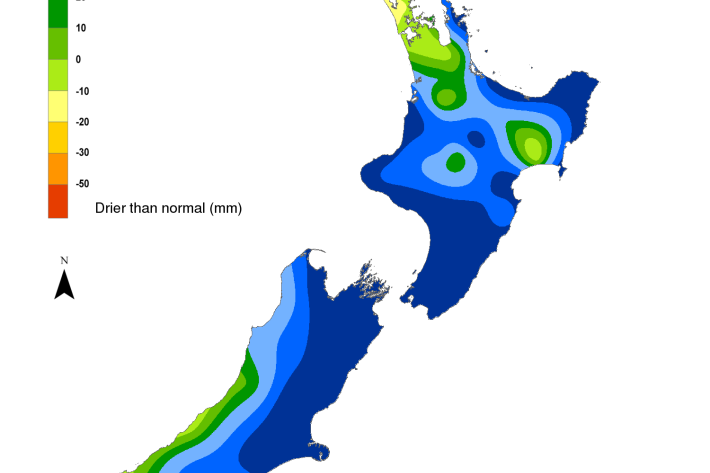
Hotspot Watch 17 February 2022
Hotspot17 February 2022A weekly update describing soil moisture patterns across the country to show where dry to extremely dry conditions are occurring or imminent. Regions experiencing significant soil moisture deficits are deemed “hotspots”. Persistent hotspot regions have the potential to develop into drought.
